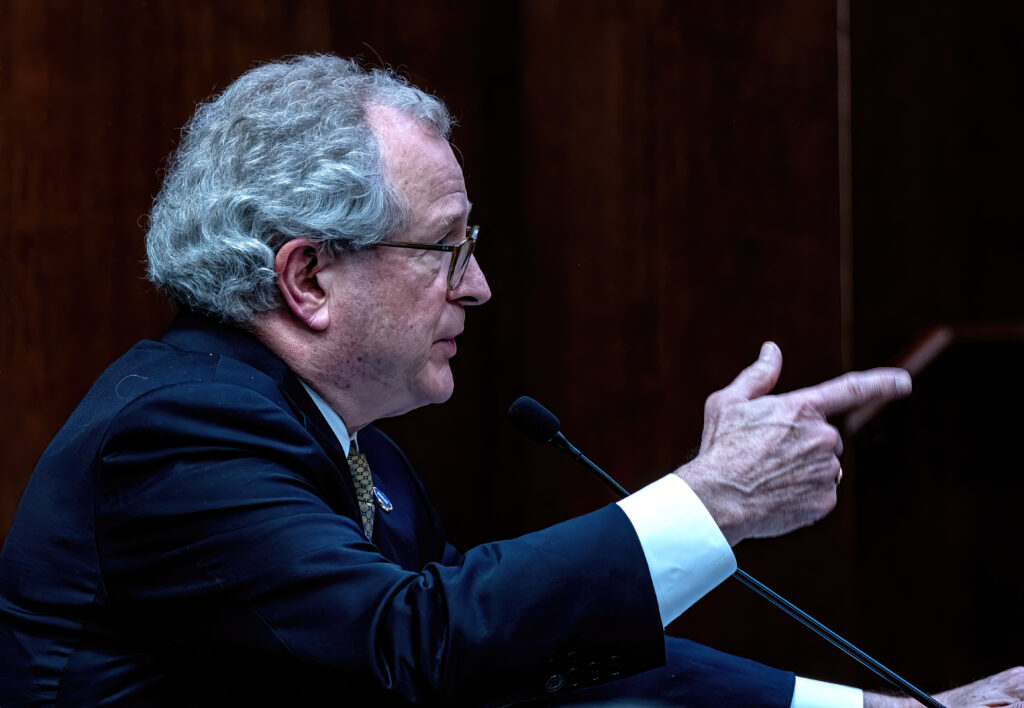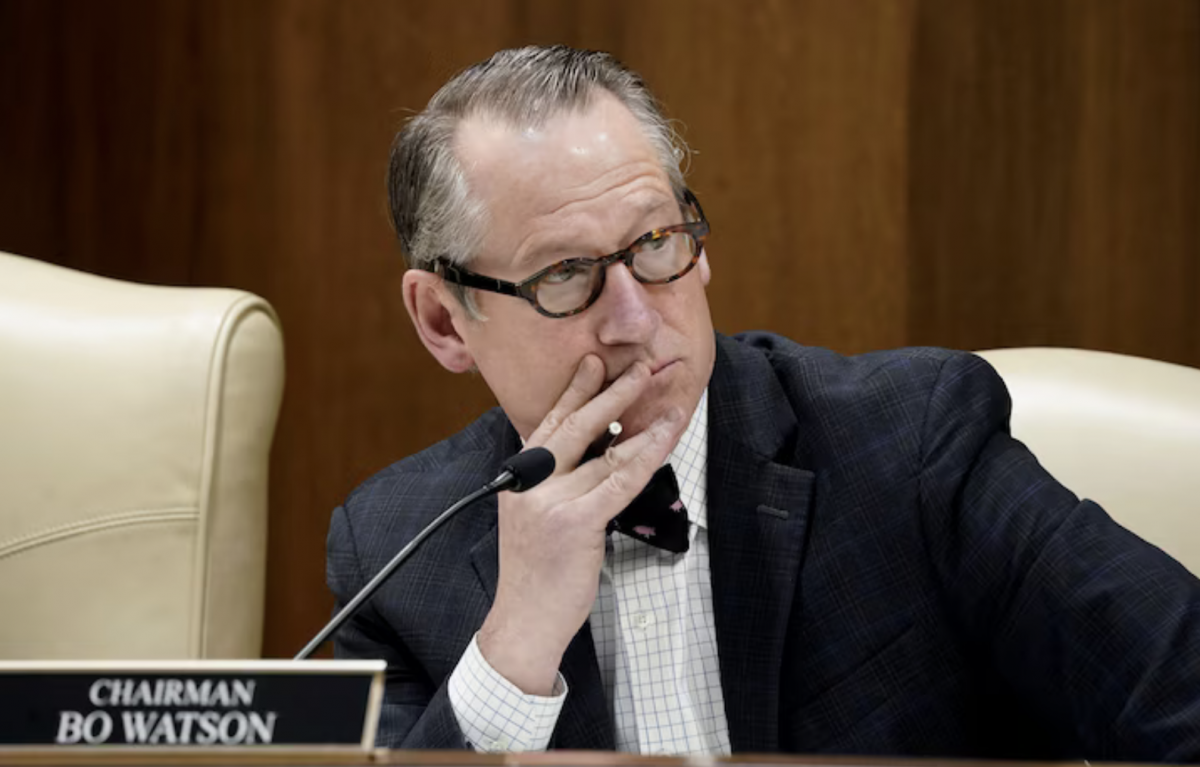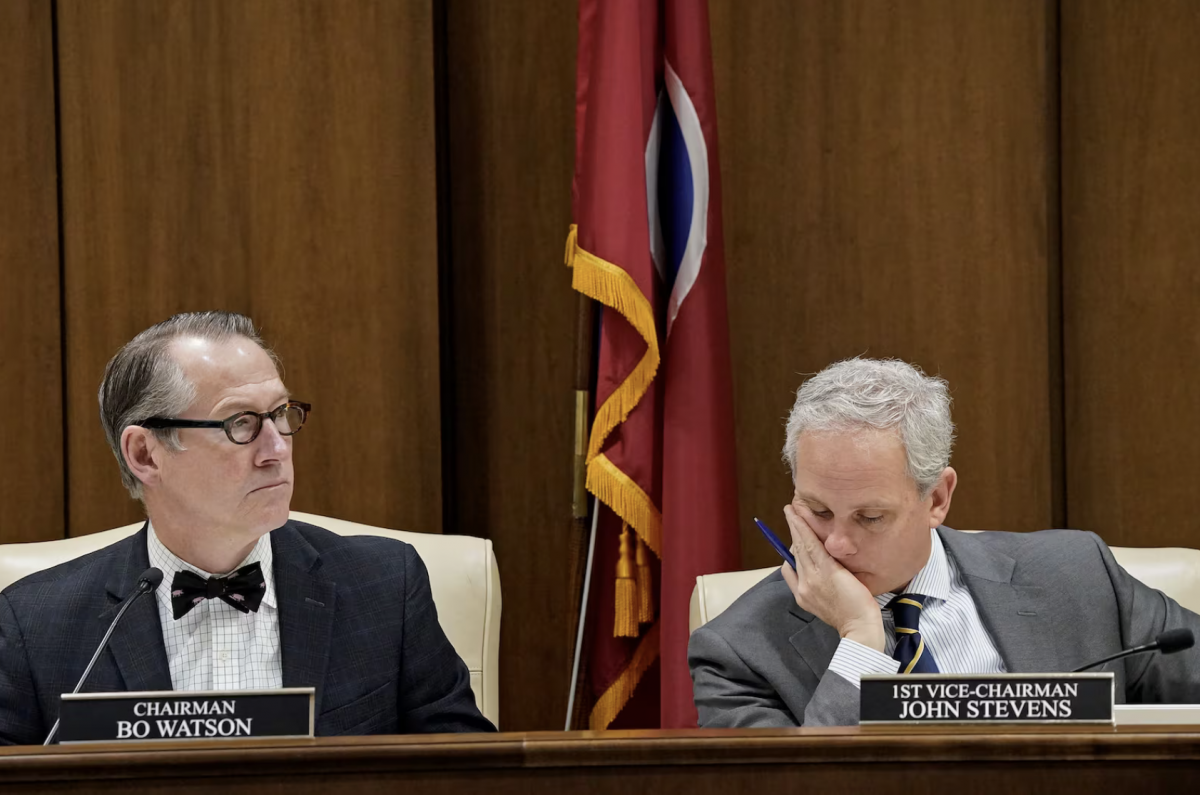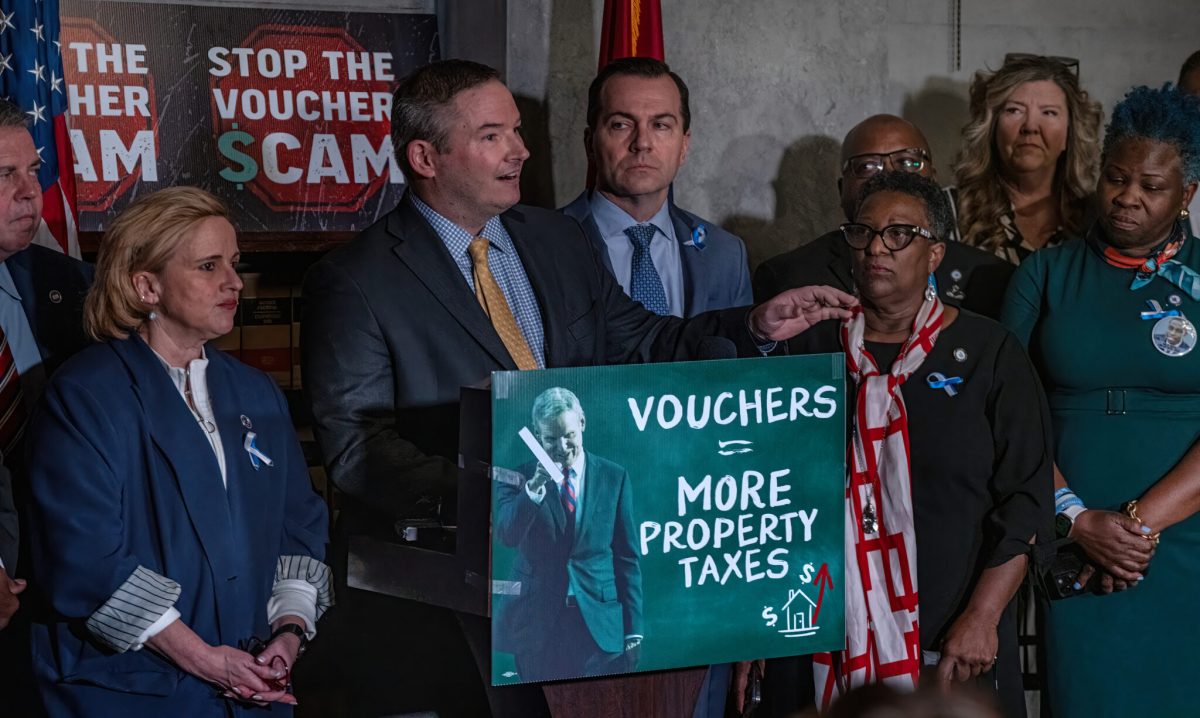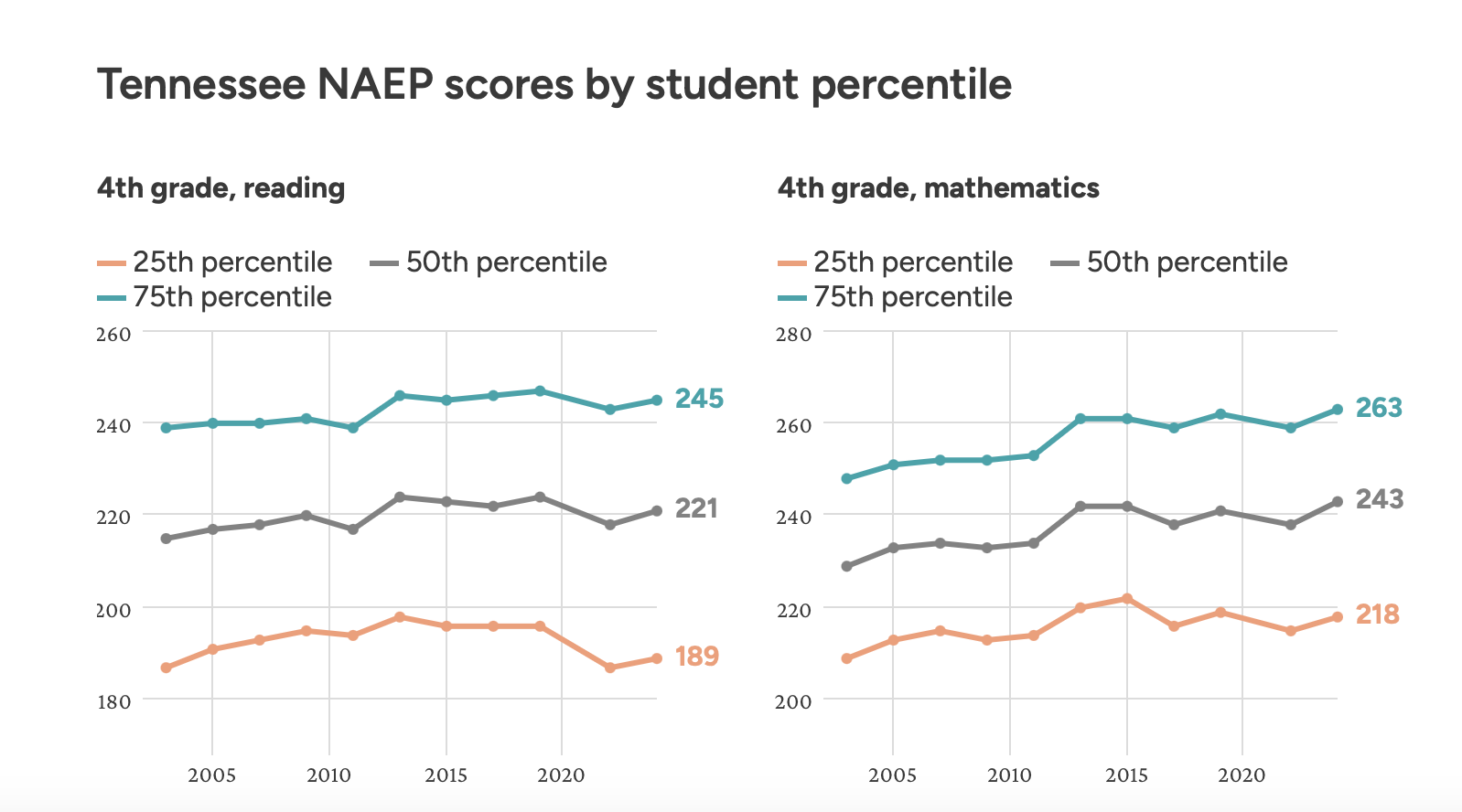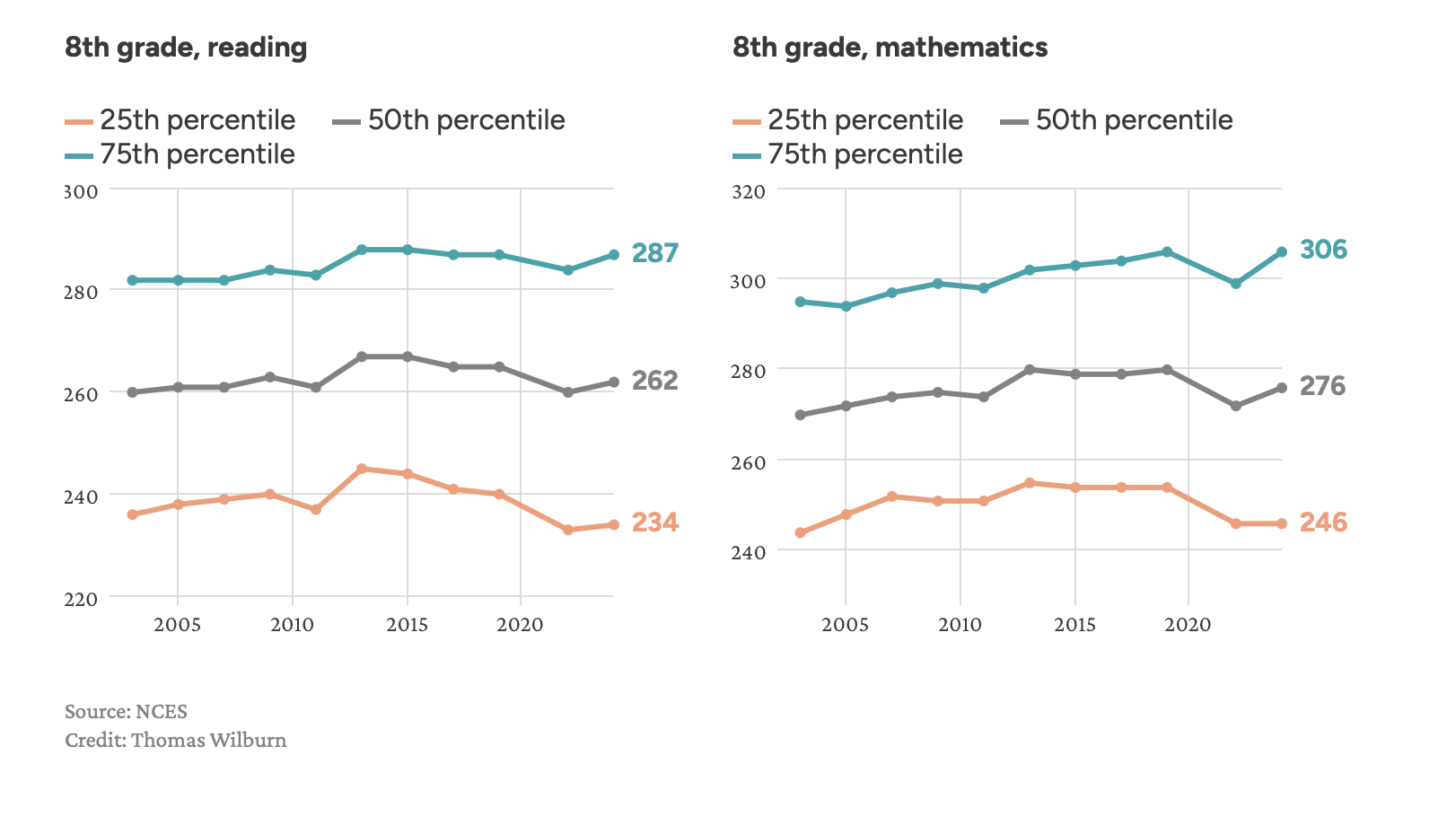In a small recording studio near Nashville, Tennessee, conservative activist Kelly Schenkoske urged an online audience of parents to scour school district websites for contracts that mention social and emotional learning (SEL).
“Social-emotional learning is far more than just kindness,” Schenkoske said. “It is a bait and switch.”
The bait, according to Schenkoske and other panelists at the recent Moms for Liberty training event, is small shifts in the school day to introduce students to lessons about virtuous qualities like empathy and compassion.
The switch, they said, is to make children sympathetic to what they see as progressive ideas, ranging from open borders and acceptance of homosexuality to gun control, action against climate change, and redistribution of wealth.
“You send your child with your value system, your own beliefs, and now they’re getting the government’s value system installed into them,” warned Schenkoske, who hosts a podcast from her California home about education and parent rights.
The two-hour training session was the first installment in Moms for Liberty U, an online course meant to drive conservative parent activism in the group’s continuing effort to sway local and national education agendas.
That it focused on social and emotional learning illustrates the staying power of conservatives’ concerns about schools’ role in addressing student well-being. These concerns stretch back years, even as research on SEL shows wide-ranging benefits for students.
Now Moms for Liberty has an ally in the White House, with President Donald Trump painting schools as centers of radical indoctrination and signing executive orders that seek to stamp out teaching about systemic racism and policies supportive of transgender youth.
The group’s future trainings will cover critical race theory, restorative justice, sex education, library content, Marxism, and more — topics that are under scrutiny by the new administration and more prominent in public conversation.
Tiffany Justice, a Florida mom, activist, and former school board member who co-founded Moms for Liberty, sees SEL at the root of everything. She hopes the administration soon will call it out by name, too.
Parents who agree with the Trump administration can “take those executive orders, that messaging, and really make it come alive throughout the entire country,” Justice told Chalkbeat.
SEL use grew in schools after the pandemic
Social and emotional learning is an educational approach introduced in the 1960s to teach life skills designed to help children manage stress, treat others with respect and empathy, work cooperatively, and recognize and regulate their emotions.
The use of SEL tools has increased as educators seek to help students rebound academically and emotionally from disruptions to schooling and children’s daily lives after the Covid pandemic emerged in early 2020.
About 83 percent of principals reported last year that their schools use an SEL curriculum or program, compared with 73 percent in the 2021-22 school year and 46 percent in 2017-18, based on a nationally representative survey by RAND Corporation and the Collaborative for Academic, Social, and Emotional Learning, or CASEL.
Educators say the pandemic deeply affected students’ mental health, contributing to higher rates of depression and anxiety. And national studies highlight an urgent need to provide kids with tailor-made interventions. An infusion of federal aid for education during the pandemic helped to fuel the growth in SEL adoption.
The programs vary in quality. But a large analysis of studies on SEL published in 2023 found a wide range of positive effects, including better academic performance, homework completion, and attendance, a major area of concern nationwide since the pandemic.
Though teachers sometimes complain that SEL is one more thing piled on their very full plates and could distract from pure academics, the analysis also found that programs led by teachers had more positive effects than those led by counselors or outsiders.
“It’s frustrating to see the science and impacts in schools and then to see the noise around the banning of SEL,” said Christina Cipriano, an associate professor at Yale University and lead author of the meta-analysis, which synthesized more than 400 studies over 13 years that collectively included half a million children.
Cipriano recalled a trip to Washington, D.C., to talk with policymakers about using science to make decisions, including about social and emotional learning. One Republican congressional staffer told her that their constituents would love everything about her work — except the name.
“You have a Control-F problem,” the staffer said, referring to the computer keyboard command that lets someone easily find a term in documents such as school district contracts to purchase SEL products and services.
Polls back that up. Large numbers of parents support the idea that schools should teach interpersonal skills and self-regulation, but far fewer react positively to the term “social and emotional learning.”
Another SEL backlash brews
Justice, now a visiting fellow at the Heritage Foundation, a conservative think tank with close ties to the Trump administration, described social and emotional learning as a “Trojan horse” that opens students to ways of thinking that run counter to what parents teach at home. For example, an emphasis on kindness might lead a student to feel pressure to use a transgender classmate’s preferred pronouns, she said, when that makes the first student uncomfortable and runs counter to their parents’ values.
That’s why Moms for Liberty U started its parent training series with a focus on social and emotional learning.
“We had to start here, because this is what opens the child up to the indoctrination,” Justice said. “It’s the programming mechanism that allows for gender ideology to come in, for critical race theory to come in.”
The training session, which was taped early this year, describes SEL as being tucked into dozens of programs and tools in common use in schools, from teacher-parent messaging platforms to programs designed to make recess a more positive experience. Panelists named surveys on youth well-being as another example of SEL.
Alex Neuman, a conservative author who appeared on the inaugural training panel, said the ultimate goal of SEL is “de-Christianizing education,” something he traces back to Horace Mann, the 19th century social reformer considered one of the fathers of public education.
Panelist Jennifer Kom, a psychology professor at Bethany Lutheran College in Minnesota, said SEL forces teachers to be therapists and leads children to disclose personal matters that can lead to bullying.
Their arguments were enough to convince Tennessee mom Genevieve Pahos to take her activism a step further.
Pahos was part of a small live audience at the taping. A Moms for Liberty chapter leader in Williamson County, south of Nashville, she already had heard many of the arguments against SEL, but she said the session inspired her to start filing more public records requests about SEL programs in her local districts.
“I learned a lot from some of the speakers,” she said, “about how to find out what’s really happening in our schools.”
Speaking to Chalkbeat after the training session, Justice said schools should stick to academics.
“Kids are sad sometimes; it’s okay to be sad sometimes,” she said. “But we need to help children be resilient and find their way through [sadness] by finding interest in life and success in school and giving them the confidence that they get from mastery of skills in the classroom.”
Put another way: “It ends up having kids marinating in their feelings all day. It’s very hard to focus on learning math if we’re all talking about, you know, Johnny’s dog that died.”
Researcher: Schools should include families in SEL programming
Even supporters of social and emotional learning are sometimes fuzzy on what SEL is and isn’t, Cipriano said, which can make it hard to have productive conversations across different viewpoints.
SEL is not therapy or a mental health intervention, she said. But done well, it might mean fewer children need mental health support down the road, just as teaching reading properly to all students might mean fewer students need special education services.
Building resilience — so that students can focus on academics even when bad things are happening around them — is one goal of SEL.
School leaders should think about what problems they want to solve and how they’ll support teachers, Cipriano said, not just adopt a social and emotional learning curriculum because it seems like the thing to do.
She’s working on a public database that she hopes will help school communities make better decisions about which curriculum or products to invest in. Users will be able to see what outcomes were generated by certain programs and the types of communities where these programs have been tried.
She sees lots of room for improvement — better teacher training, more rigorous reviews of existing curriculum, and better communication with parents.
“It seems to me that we have a real opportunity to engage families at the outset of implementation so they’re aware of what’s happening in the schools,” she said. “When you talk to parents and families about the strategies involved in social and emotional learning, you’d be hard pressed to find someone who doesn’t want their child to be a good friend or have less test anxiety.”
Marta Aldrich is a senior correspondent and covers the statehouse for Chalkbeat Tennessee. Contact her at maldrich@chalkbeat.org.
Erica Meltzer is Chalkbeat’s national editor based in Colorado. Contact Erica at emeltzer@chalkbeat.org.
Chalkbeat is a nonprofit news site covering educational change in public schools.
